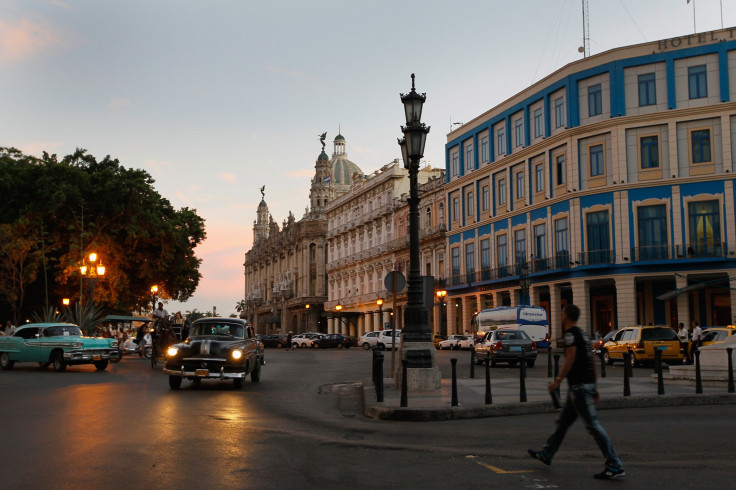What The Shift In Cuba Policy Means For Americans Who Want To Travel To Cuba

The Obama administration's historic announcement on Wednesday that diplomatic relations with Cuba will be reopened bodes well for Americans hoping to visit the Caribbean island nation as tourists, experts say. But U.S. citizens still can't hop on a plane for a vacation to Cuba, as they would to Mexico.
"The liberalization of travel announced by President Obama will make it easier for people to visit Cuba, but tourist travel is still prohibited by law," said American University professor William LeoGrande, an expert on U.S. foreign policy toward Latin America, via email from Cuba.
The president said: "We are taking steps to increase travel, commerce and the flow of information to Cuba. It will be easier for Americans to travel to Cuba, and Americans will be able to use American credit and debit cards on the island."
While the thaw in relations does include a provision to allow Americans to bring back up to $400 worth of goods from Cuba (up to $100 in alcohol and tobacco products), it does not actually change the 12 existing categories of licenses available to Americans who want to visit the country, nor does it create a tourist visa for Americans.
The Obama administration already significantly expanded those categories in 2011 to make it easier for American students and religious and cultural groups to visit Cuba. Last year, about 170,000 Americans traveled lawfully to Cuba, reports the Department of Commerce. About 98,000 went through people-to-people cultural exchange programs that have proliferated since 2011.
"People will have to travel on education programs, as they do now, but the process of doing that will be much easier. Tourist travel, however, will require congressional action," LeoGrande said.
Even so, experts familiar with the country say that the administration's move signals a shift that may actually spur Congress to approve tourism visas. "I think it raises hope that we're reaching the endgame, which is to lift all travel restrictions," said Christopher T. Baker, a travel writer who has visited Cuba more than 100 times and leads cultural exchange programs through National Geographic and MotoDiscovery. "It begins the process of liberalizing travel, and hopefully we'll get to the point where Americans can go freely. The momentum is definitely in the right direction."
The travel industry is anxious and hopeful about the possiblity, as well. Online travel company Orbitz applauded the Obama administration's move today. "We look forward to the day -- hopefully soon -- when all Americans have the opportunity to travel to Cuba," said Orbitz CEO Barney Harford in a statement. "There are numerous economic, social and cultural benefits that will flow from free and open access and our customers are eager to visit Cuba."
And several American airlines have been expanding service to Cuba through charters, reports the Associated Press. American Airlines has been operating charter flights to Cuba for more than 15 years, while JetBlue got into the game in 2011. "We're doing it because we want to exercise our muscles and understand how you operate into this country. What happens with parts, quarantine, crews," JetBlue CEO David Barger told the AP last year. "Just understanding what happens, if in fact there's a normalization."
But actually getting legislation through Congress to lift the embargo might be an uphill battle. Many in the Republican Party aren't happy about the thaw; presidential hopeful Jeb Bush called for strengthening the embargo against Cuba rather than lifting it (which the agremeent announced on Wednesday does not do).
"Although President Obama said he would work with Congress to lift the embargo, I think congressional Republicans will not be interested in helping him. Already their reaction is very hostile to the new policy," said LeoGrande. "In fact, I think that is why the president did so much of this change through executive authority."
© Copyright IBTimes 2024. All rights reserved.




















